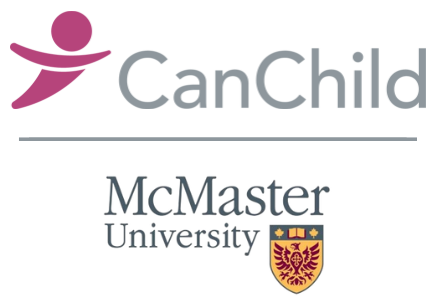Dr. Elaine Biddiss and Dr. Anna McCormick answered questions about the CP-NET neurotechnology platform and a video game (Bootle Blast) that they developed to track the movement of children with cerebral palsy.
Read Resources
96 resources found
Traffic Lights Model for Cerebral Palsy Interventions
Professor Iona Novak answered several questions about the State of the Evidence Traffic Lights 2019 systematic review on interventions for preventing and treating cerebral palsy in children.
Read Resources
Mental Health in Adolescents and Young Adults with Cerebral Palsy
This workshop, led by Dr. Jan Willem Gorter, explores the preliminary findings from the MyStory study, provides resources to help cope during COVID-19, and shared strategies framed around the F-Words on how to stay active and engaged!
Read Resources
Transition to Adult Care: Experiences from Youth and Young Adults
A CP-NET webinar presented by young adults with cerebral palsy who share about their journey from child to adult health care.
Read Resources
Stay-FIT
A CanChild research project that aims to develop a program to promote physical activity and encourage an active lifestyle in youth with cerebral palsy (CP) who are learning how to take care of themselves.
Read Resources
Selective Dorsal Rhizotomy (SDR) Webinar
This CP-NET webinar allows you to meet the experts on Selective Dorsal Rhizotomy (SDR), highlighting frequently asked questions and practical information. All information is presented in plain language by a panel that includes parent, doctor, therapist, and researcher perspectives.
Read Resources
Metformin and Neural Repair in Mouse Models of Cerebral Palsy
Metformin is an promising drug that may be effective in the treatment of people with CP following brain injury.
Read Resources
On Track Study Report to Families March 2018
On Track Study Report to Families March 2018
Read Resources
Cerebral Palsy and Mental Health
Mental and physical health are deeply interconnected. While chronic health conditions such as Cerebral Palsy (CP) can increase the risk of developing anxiety or depression, untreated anxiety or depression can also contribute to poor physical health.
Read Resources
Should the Gross Motor Function Classification System Be Used Outside of Cerebral Palsy?
The Gross Motor Function Classification System (GMFCS) is a classification tool used to describe levels of gross motor functioning of children with cerebral palsy (CP). Because of the tool’s accuracy in classifying children with CP, some researchers have attempted to use the GMFCS to describe functional mobility of people with other conditions. Here we explain why the GMFCS should not be used outside the domain of CP.
Read Resources
